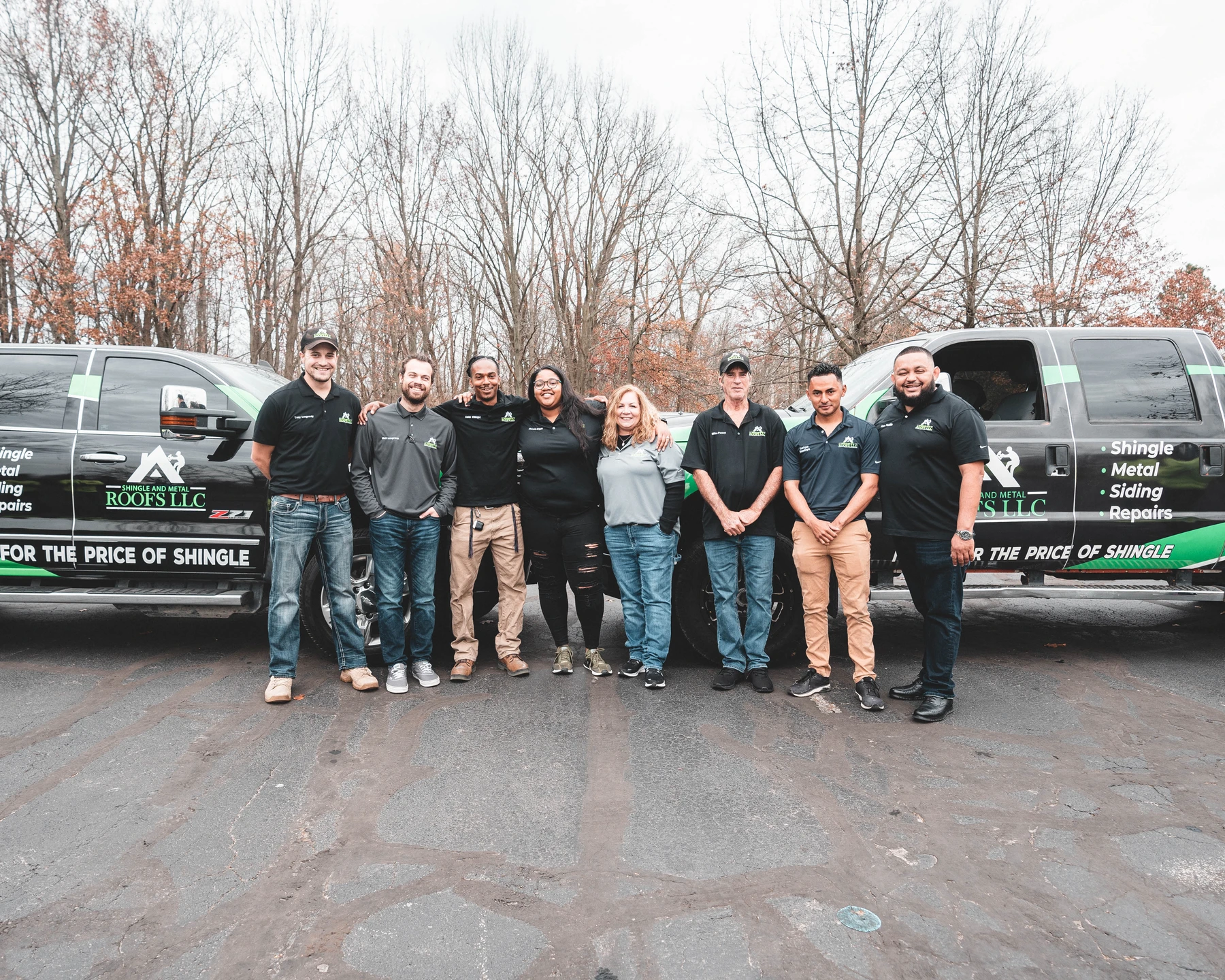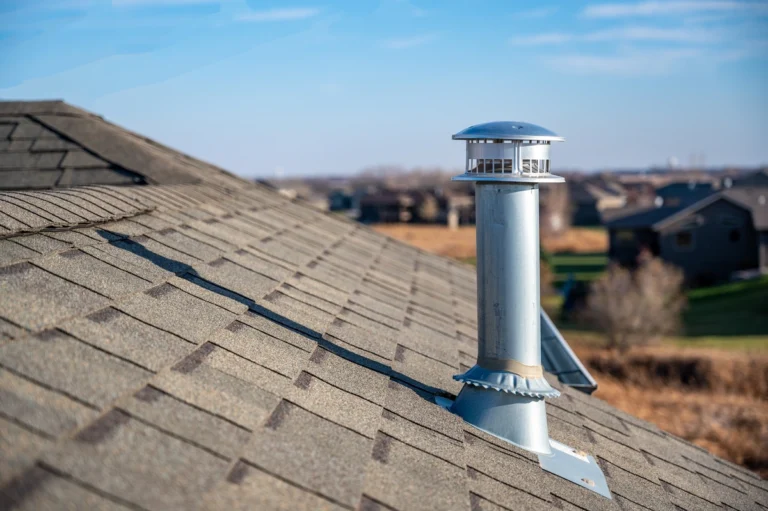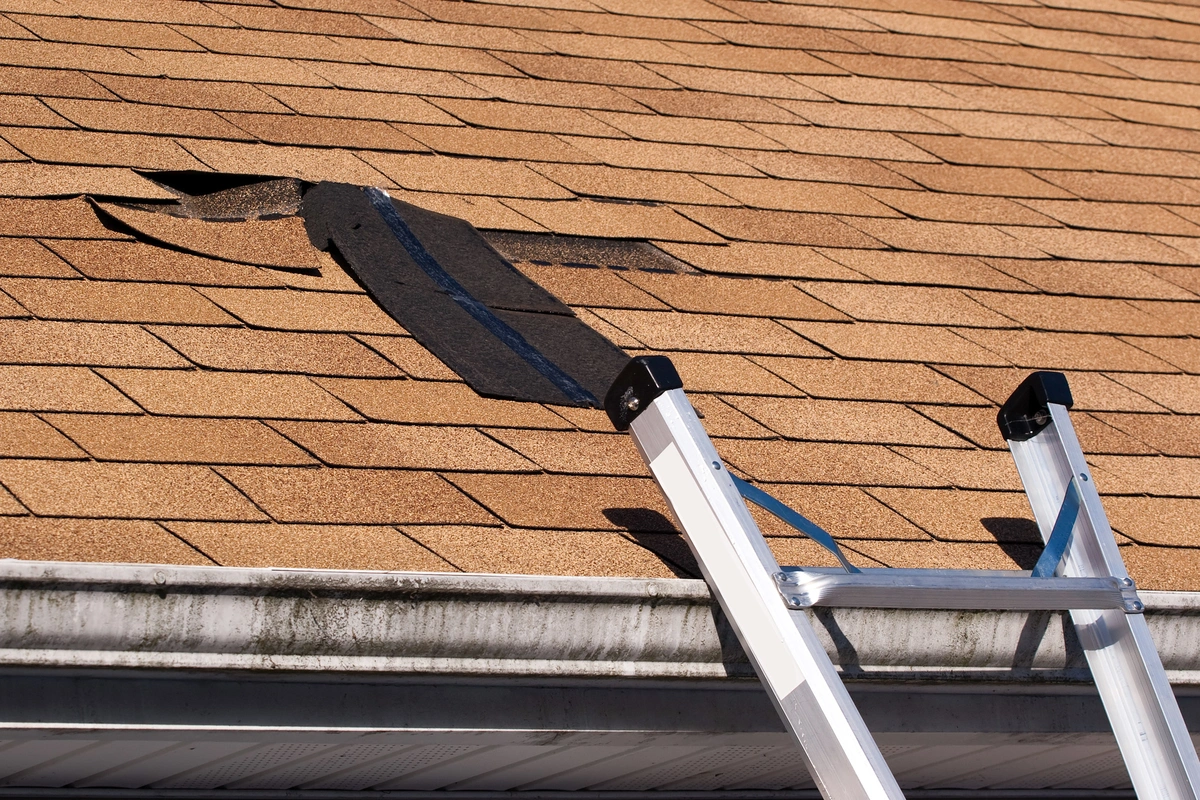
Is your roof looking less than its best? Curling or missing shingles, water stains on your ceiling, or straight-up leaks…all of these things are cause for concern. And if you are dedicated to your budget, it’s likely that you are searching for roof solutions that you can take on by yourself.
When faced with these problems, many homeowners consider DIY roof repair as a cost-effective option. In this blog, we’ll explore:
- The pros and cons of repairing your own roof
- Common signs your roof might need repair
- Insights into essential tools for the job
- When it’s time to call in a professional
Whether you’re doing a roof repair or thinking about taking on your own roof replacement, you need this handy guide!
Pros and Cons of DIY Roof Repairs
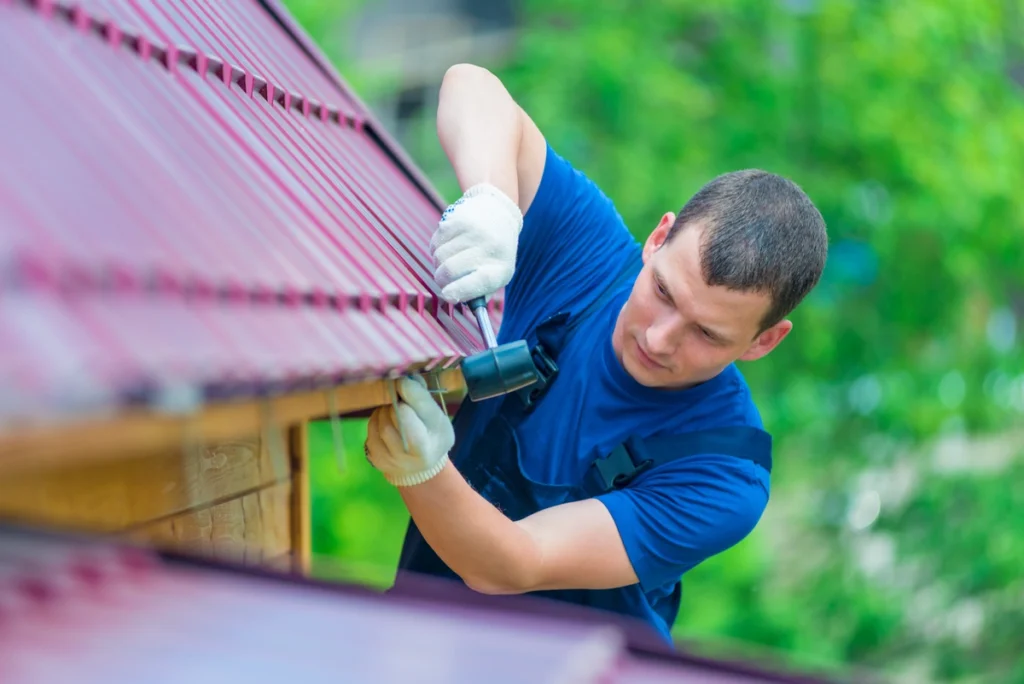
DIY roofing isn’t a walk in the park. However, if you are a handy homeowner, you might relish taking on this new challenge. But before you pull out your ladder, it is important to consider all the different factors. Here are some of the pros and cons of doing your own roofing work.
✅ Pros of DIY Roof Repair
- Cost Savings: One of the primary reasons homeowners choose to repair their roofs themselves is to save money on labor costs. Hiring a professional roofing contractor can be expensive, especially for minor repairs.
- Control Over the Process: DIY roof repair gives you complete control over the entire process, from selecting materials to performing the work. This allows you to ensure the job is done to your satisfaction.
- Learning Experience: Repairing your own roof can be an educational experience. It can provide you with a better understanding of your home’s construction and the maintenance it requires.
- Immediate Action: When you spot a problem, you can address it immediately instead of waiting for a contractor’s availability, potentially preventing further damage.
❌ Cons of DIY Roof Repair
- Safety Risks: Roof work can be dangerous, especially for those without proper training and equipment. Slips and falls are common accidents that could result in severe injuries.
- Lack of Expertise: Roofing professionals have years of experience and training, which enables them to identify underlying issues and provide lasting solutions. DIYers may miss hidden problems, leading to recurring issues.
- Time-Consuming: Roof repair can be a time-consuming task, especially if you lack experience. You may end up spending more time and effort than initially anticipated.
- Potential for Mistakes: Inaccurate repairs can exacerbate the problem or create new ones. This can lead to more extensive and expensive repairs down the road.
Signs Your Roof Might Need Repair
Before you embark on a DIY roof repair project, it’s crucial to identify the signs that your roof needs attention. Here are some common indicators:
- Leaks: Water stains on your ceiling or walls, or visible dripping during rain, are clear signs of a leaky roof.
- Damaged Shingles: Missing, cracked, or curled shingles can leave your roof vulnerable to water infiltration.
- Sagging Roof: A visibly sagging roof could indicate structural issues that need immediate attention.
- Granule Loss: Excessive granules in your gutters or on the ground may suggest that your shingles are deteriorating.
- Flashing Damage: Damaged or improperly sealed flashing around chimneys, vents, and skylights can lead to leaks.
- Algae or Moss Growth: If you notice the growth of algae or moss on your roof, it can accelerate shingle deterioration.
- Increased Energy Bills: A sudden increase in heating or cooling costs could be due to a poorly insulated or damaged roof.
Essential Tools for DIY Roof Repair
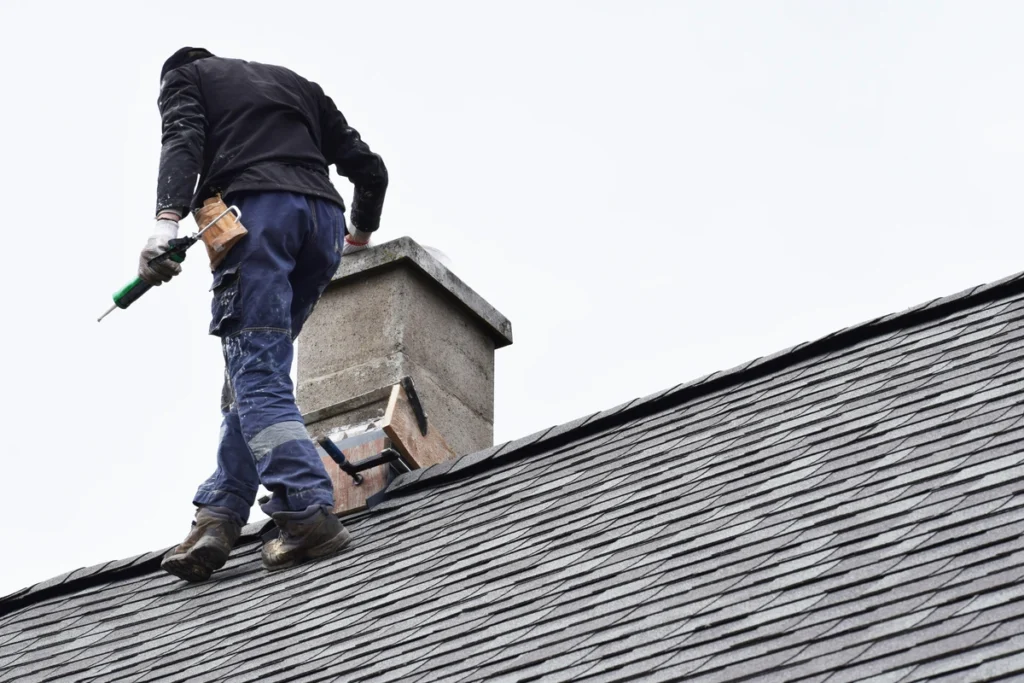
If you decide to tackle roof repairs on your own, it’s crucial to have the right tools and materials to ensure the job is done correctly and safely. Here are some essential tools and equipment you’ll need:
- Safety Gear: Invest in a sturdy ladder, harnesses, safety glasses, and nonslip footwear to minimize the risk of accidents.
- Roofing Materials: Purchase the necessary roofing materials such as shingles, underlayment, flashing, and roofing nails. Ensure they match your existing roof as closely as possible.
- Roofing Hammer: A roofing hammer or roofing nail gun will help you secure shingles and flashing securely.
- Pry Bar: A pry bar is essential for removing damaged shingles or flashing without causing further harm.
- Roofing Nails and Screws: Stock up on high-quality roofing nails and screws to ensure your repairs withstand the elements.
- Caulk and Sealant: Roofing sealant and caulk can help seal gaps and prevent leaks around flashing and vents.
- Roofing Cement: This thick adhesive is ideal for patching small holes and cracks.
- Roofing Brushes: Brushes designed for cleaning and applying coatings can help you maintain your roof.
- Tarp: A tarp can be useful for protecting your roof and preventing further damage while you work.
When to Call in a Professional
While DIY roof repair can be a cost-effective and rewarding endeavor, it’s not always the best solution. There are situations when it’s wiser to call in a professional roofing contractor:
Extensive Damage
If your roof has sustained significant damage or has multiple areas in need of repair, it’s best to hire a professional. They can assess the full extent of the damage and provide comprehensive solutions.
Safety Concerns
If you’re uncomfortable working at heights or lack the necessary safety equipment, don’t risk your well-being. Professional roofers are trained to work safely in challenging conditions.
Complex Repairs
Roofing issues involving structural damage, complex flashing systems, or intricate designs are best handled by experts who have the experience and knowledge to tackle these challenges effectively.
Warranty Preservation
Some roofing materials come with warranties that may be voided if you attempt DIY repairs. Hiring a professional ensures that your warranty remains intact.
Time Constraints
If you need a quick fix or your roof issue requires immediate attention, professionals can offer prompt solutions.
For Roof Replacements, Call Shingle and Metal
DIY roof repair can be a satisfying and cost-effective way to address minor roofing issues. However, it’s essential to weigh the pros and cons carefully, assess your own skills and comfort level, and prioritize safety above all else. But when taking on your own roof repairs feels a little daunting, a professional roofing contractor is definitely your best option. And with Shingle and Metal Roofs on your side, you can’t go wrong! Contact us today to set up your roof inspection and get your home back on track!

